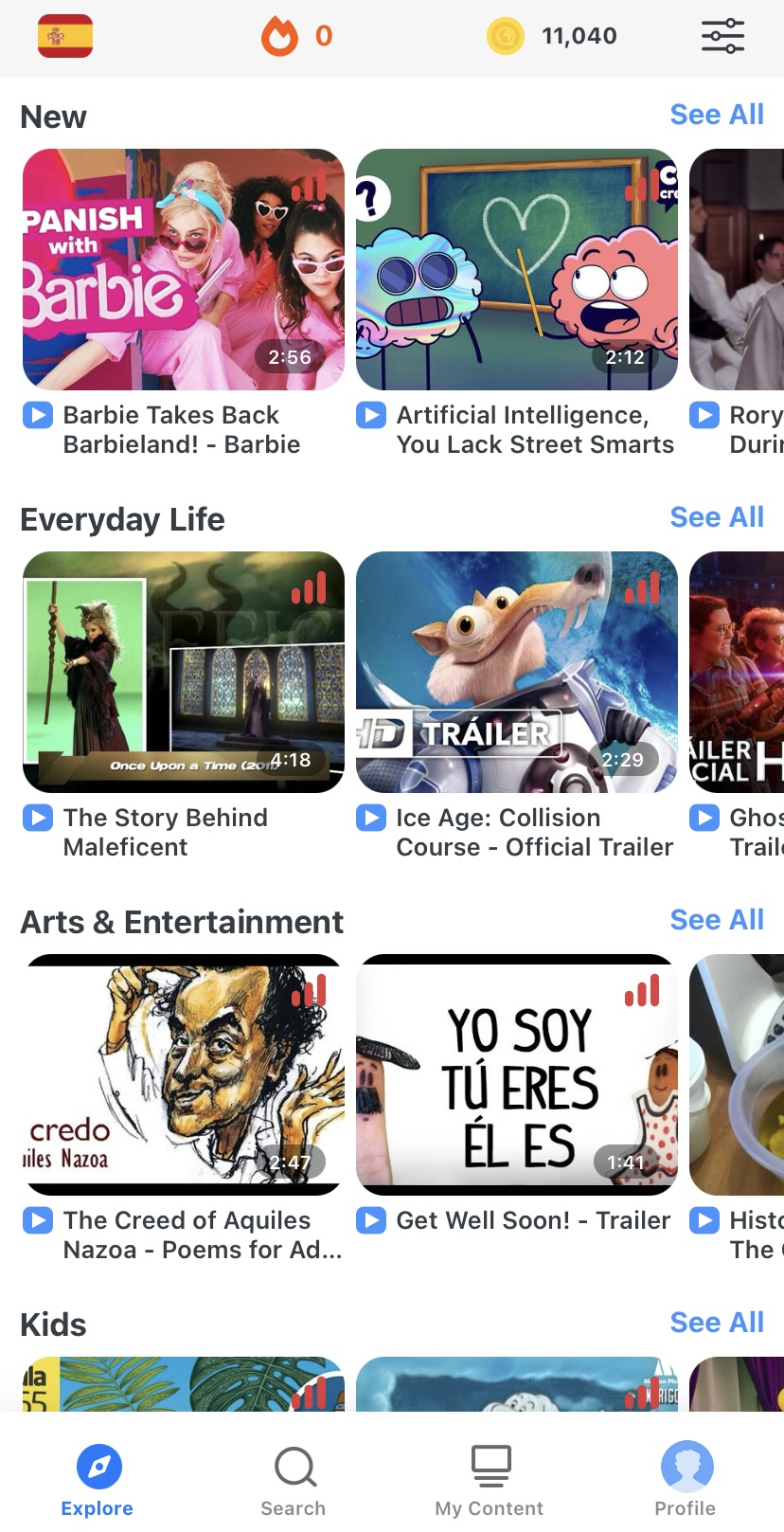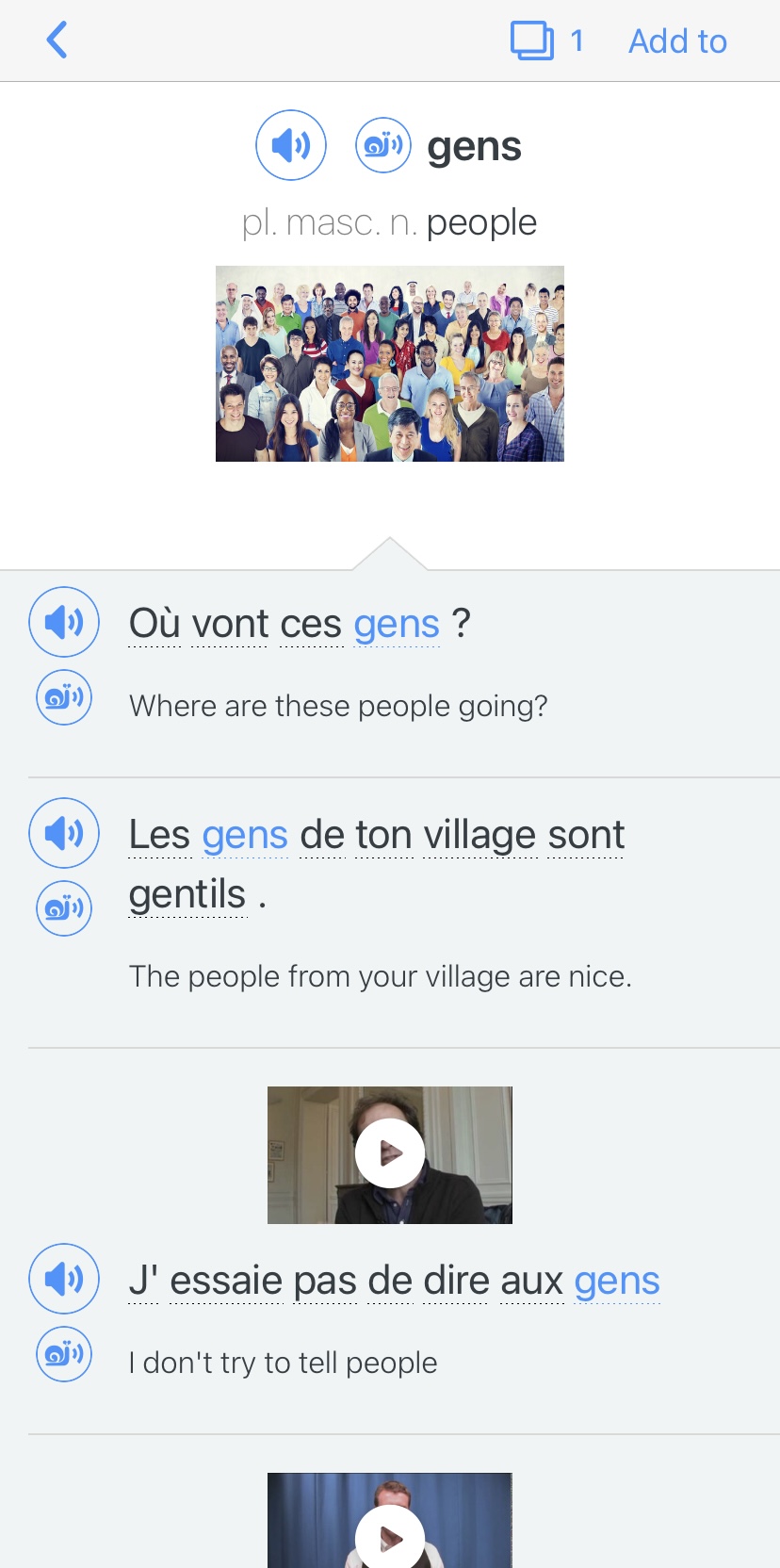How to Create Your Own Effective Language Study Plan

Have you recently decided to learn a new language, or recommitted to improving your language skills? If so, you should know that learning a language, like any other major goal or commitment, requires long-term, consistent follow-through.
That’s why the key to real language learning success often lies in a rock-solid language study plan. Read on to learn how to create it.
Download: This blog post is available as a convenient and portable PDF that you can take anywhere. Click here to get a copy. (Download)
1. Make Your Language Study Plan Realistic
Have you ever met someone who says they’re going to study their target language four hours per day, in spite of having a full-time job and three kids?
Maybe they’re super dedicated and can pull it off… But it’s more likely that they’ll burn out after a few weeks and stop studying entirely.
We all have things going on in our lives, and it’s important to realistically assess all of your other commitments before starting a project like language learning. Here’s how you can go about doing so:
- Make a grid of Monday through Sunday, with each day broken into hour-long intervals.
- Fill in the grid with your typical weekly activities. Include everything, and be specific. If you spend an hour commuting, label it “commuting,” not “work.” If you go out with friends on a particular night, include that. If you watch a TV show, include that.
- Identify any times you don’t usually have activities—those are the first places you can schedule language study! Time management apps like Rescue Time can also help you locate and use downtime in your schedule.
- Identify activities that you might be willing to give up in order to make more time for language study (especially if you don’t have much downtime in your schedule in the first place).
- Find any activities in your schedule that could be overlapped with language study. Commuting, for instance, is a great time to listen to language learning materials.
- Put your proposed language study times into your calendar!
Remember: Don’t be too ambitious with your language study plan, especially right at the beginning.
As you’re creating a schedule that will work around your other commitments, resist the temptation to fill every waking hour with language study. That’s a good recipe for burnout.
A good language study plan is sustainable, and shouldn’t involve giving up your favorite TV show or staying up two hours later every night.
2. Incorporate Diverse Learning Activities
Your language study plan should include self-study time—time that you’re listening to podcasts or watching videos, practicing grammar and memorizing vocabulary.
This is for consuming authentic content in your target language. Video content made by and for native speakers, for example, will help you get used to understanding the language when spoken at a natural pace, and it will introduce you to vocabulary you might not learn otherwise.
Video resources for language learning will ideally have reliable captions in your target language. A video-focused language learning program can be a good choice for this reason, such as FluentU.
FluentU takes authentic videos—like music videos, movie trailers, news and inspiring talks—and turns them into personalized language learning lessons.
You can try FluentU for free for 2 weeks. Check out the website or download the iOS app or Android app.
P.S. Click here to take advantage of our current sale! (Expires at the end of this month.)

You should also plan to work with native speakers for guided instruction, whether that’s in a class, with a private tutor or with a language exchange partner.
For instance, you can find professional language tutors for hire on italki, which lets you identify the ideal tutor for you based on your schedule, budget and language goals.
Beyond different types of studying, fluency in a foreign language also comes from mastery of reading, writing, speaking and listening, so the best language study plans also make time for these skills.
Truly masterful study plans align the type of skill with your energy level and other activities. For example, if you commute to work, listening to a podcast in your target language every day during this time is a great idea.
Alternatively, if writing is the most difficult skill for you to master, schedule your writing practice at a time when you tend to be alert and energetic and you can be 100% focused on the task at hand.
3. Target Specific Language Goals
Of course, to do this, you’ll need to set some language learning goals. You can read more about how to set good goals here.
Since everyone has different goals, you’ll need to make sure your language study plan reflects your own ambitions and not someone else’s—that way you can practice the language skills that will get you closer to achieving them.
If your language goal is to read literature in its original form, your study plan should be heavy on reading practice. If you need to use the language at work, your plan should focus on business vocabulary and professional communication.
You can measure your progress in these areas by making goal-specific benchmarks, or short-term goals.
In general, benchmarks are essential to a good language study plan, but you also need them to be specific to your aims. Scoring high marks on a test that measures reading ability isn’t that useful if you really want to improve your speaking.
Here are some sample benchmarks that might be relevant to your own specific goals:
- Have a 20-minute conversation in your target language with a native speaker.
- Read a complete book in your target language. (You might even specify which book.)
- Watch a movie without subtitles in your target language.
4. Include Periodic Evaluations
You’ll need some way to determine if your plan is working—and those evaluation mechanisms should in fact be part of your study plan. Besides completing your benchmarks, there are two main ways to check how you’re doing.
The first is to take language proficiency tests.
Many languages have standardized language proficiency exams that people use to prove to employers or others that they can speak and comprehend the language. Some well-known examples are the HSK for Chinese, the DELF/DALF for French and the DELE for Spanish.
Incorporate taking these exams into your general study plan. They will provide an outside, objective evaluation of your progress, and give you an idea of which language skills you are comparatively weaker in.
Knowing that a test is coming up can also be a powerful motivator to put in a little extra study time!
The second way to assess your language abilities is to get an individual evaluation from a tutor.
Besides italki, you can find more tutoring options at Verbling, which even offers its own video technology so you can have lessons right on the site.
Your language tutors can—and should—provide you with feedback about your language skills. If you meet regularly, it’s appropriate to ask for a progress report every month or every two months, so that you can make sure you’re still on track.
5. Follow a Consistent Study Schedule
The whole point of a study plan is to be as consistent as possible, so that you can actually learn your target language well.
To that end, every language learning activity should have a time and a place.
You don’t want to say, “I’ll do one hour of listening practice this week.” Instead, it should be, “Every Tuesday and Thursday I’ll do half an hour of listening practice while I ride the train to work between 8:30 and 9:00 in the morning.”
You’re more likely to follow through week after week if you have the exact time and place nailed down in advance!
It’s also important that your language time is sacred—no text messages distracting you, no roommates offering you dinner and no kids begging for attention. You should do your absolute best to avoid interruptions during study periods.
Having scheduled activities helps manage interruptions enormously, because you can communicate to the people around you that you’re not available, and therefore get the maximum benefit out of your learning time, no matter how brief it may be.
Why You Need a Language Study Plan
To help you learn regularly
You know you need to put in some time reading in your target language—or doing grammar exercises or listening to that podcast—but then a friend calls and invites you out for a drink. Do you have enough self-control to say no?
If you have a set time for your language learning, it’s easier to explain to your friend (and yourself) that you have to stick to the plan and study.
If, however, you just study “when you have time,” pretty soon you end up never having time and always opting to go out with friends instead of memorizing vocabulary.
To align your goals and activities
We all learn languages for different reasons; maybe to communicate with in-laws, advance at work or consume media in its original language.
There is no right or wrong reason to learn a foreign language. But it’s important to make sure that how you study fits your goals: The person who wants to talk to their in-laws should study differently than the person who wants to read literature.
Having a study plan allows you to think through your goals and how each one of your study activities will help you move closer to each specific goal.
To make the most of your time
Every time you sit down to study, you have options—countless options. Languages are complex, and learning one requires mastering a huge set of abilities, meaning there are innumerable activities you could do and skills you could work on.
If you only have a limited amount of time (like most people), you don’t want to spend any more of it than necessary deciding whether to listen to a radio interview or do a reading comprehension exercise or write a journal entry.
A good plan will not only tell you when you’re going to study, but also exactly what you’re going to study at each time. That way, you don’t have to think about what to do when learning time begins—you just dive right in.
With the right language study plan, you can make continued progress towards fluency in your target language.
Learning a language often requires slow but steady progress, after all, and a solid plan will help you keep on track for the long haul.
Happy studying!
Download: This blog post is available as a convenient and portable PDF that you can take anywhere. Click here to get a copy. (Download)
And One More Thing...
If you're like me and love learning languages through real-world content, FluentU is a game-changer. With FluentU, you're not just memorizing words—you’re learning how native speakers actually use them.
With our newest feature, you can now bring FluentU’s interactive tools to any subtitled content on YouTube or Netflix—or even import YouTube videos directly into your FluentU account!
You’ll also get access to a huge variety of content in our curated video library, from movie trailers to news clips, music videos, and more. The best part? FluentU makes this native-language content accessible for learners of all levels.
While you watch, you can tap on any word in the interactive subtitles to see a definition, an image, audio, and useful example sentences. Want to practice new words later? Add them to your flashcards with one click. No more pausing to look up and write down new words!
And FluentU helps you actually remember what you learn with personalized quizzes, plenty of example sentences, and extra practice with the words you find difficult.
Ready to start learning in a more natural, immersive way? Try FluentU on your computer or tablet, or download the FluentU app from the App Store or Google Play. Click here to take advantage of our current sale! (Expires at the end of this month.)











